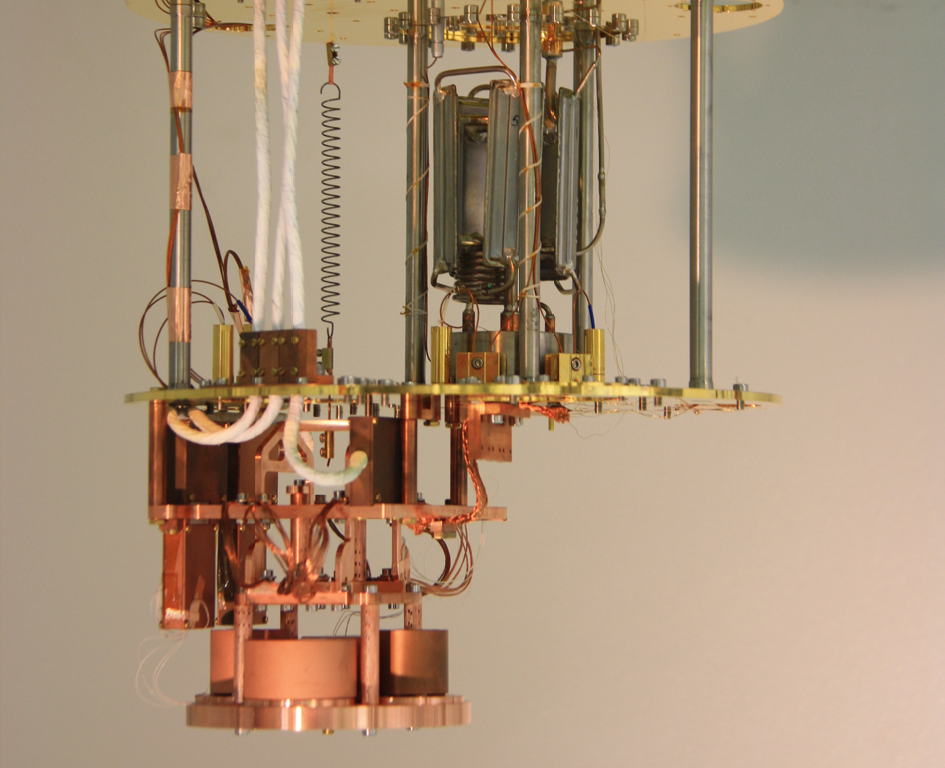Le groupe MANOIR est spécialisé dans la détection de particules interagissant extrêmement peu avec la matière. Un laboratoire cryogénique dédié à l’IP2I permet l’étude et le développement des détecteurs cryogéniques associés, sensibles à des élévations de température inférieures au millionième de Kelvin. Ces détecteurs appelés bolomètres sont des cristaux installés dans des cryostats à très basse température, seulement 0,01 degrés au-dessus du zéro absolu !
Nos bolomètres doivent permettre de découvrir les particules de matière noire, prédites en grande quantité dans notre galaxie par la Cosmologie, mais encore jamais détectées, formant un lien entre infiniment grand et infiniment petit ! L’expérience EDELWEISS, à laquelle nous apportons une contribution majeure, est dédiée à la recherche de particules de matière noire de faible masse.
Notre groupe compte aussi parmi les leaders de l’expérience Ricochet, qui s’attaque à la difficile mesure de la diffusion élastique cohérente entre des neutrinos de réacteurs et les noyaux du réseau cristallin des bolomètres. Ce processus, prédit en 1974, n’a été observé qu’en 2017. Les détecteurs originaux que nous proposons permettront une mesure très précise de cette diffusion, et peut-être d’ouvrir une porte vers de la nouvelle physique !
Avec nos bolomètres, nous tentons aussi de répondre à une question qui hante les physiciens depuis la découverte du neutrino : est-il sa propre antiparticule (neutrino de Majorana) ? Dans ce cas, une désintégration radioactive particulière et très rare devrait avoir lieu ; l’expérience CUPID, à laquelle nous participons, essaie de détecter cette réaction.
